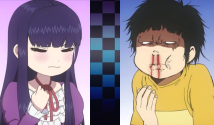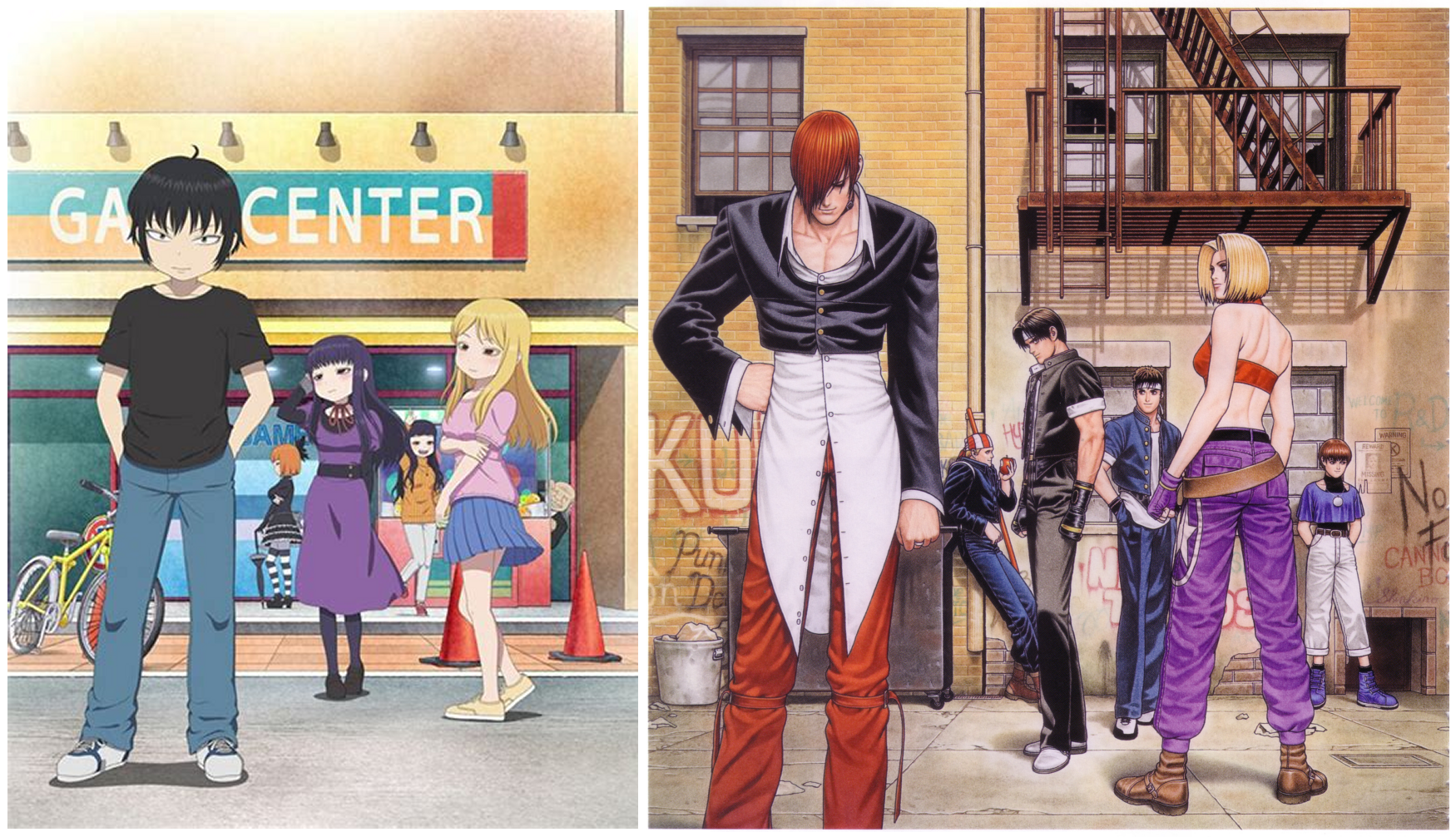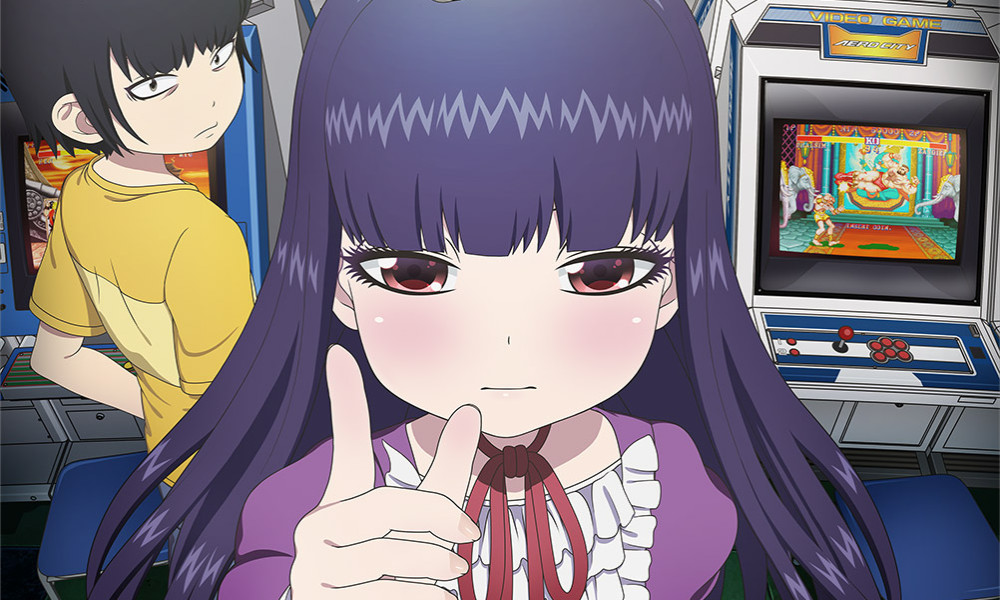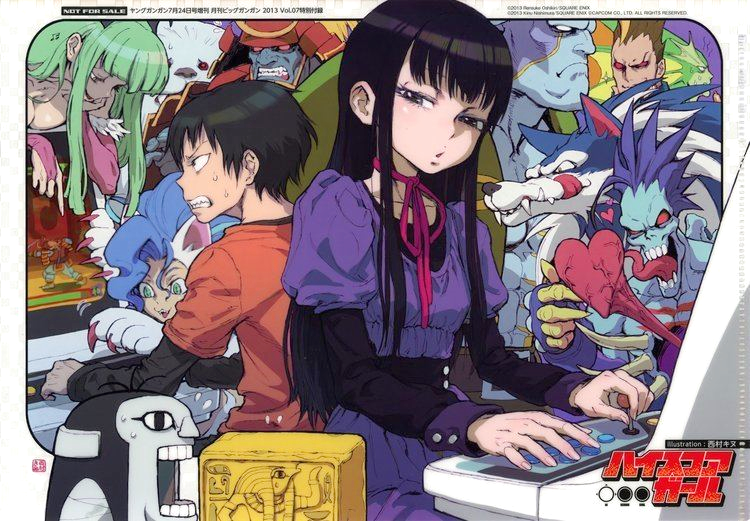|
 First
off, I'm not the typical person who recommends anime. Back in my younger
days, I used to watch a lot more anime (some old school favorites include Berserk, Initial D and Death Note).
The
last "modern" anime I really enjoyed (and couldn't get enough of)
was One Punch Man (patiently waiting for Season 2). In
general, I spend much more of my time trying to get better at fighting
games over watching TV or movies. However, as a
fighting game enthusiast for 30+ years,
I'm here to recommend to you an anime called Hi Score Girl. Originally written and illustrated by Rensuke Oshikiri, the manga released
back in 2010. Directed by Yoshiki Yamakawa, the anime was
greenlit in December of 2013 and first aired last year, July 13th to
September 28th,
2018. First
off, I'm not the typical person who recommends anime. Back in my younger
days, I used to watch a lot more anime (some old school favorites include Berserk, Initial D and Death Note).
The
last "modern" anime I really enjoyed (and couldn't get enough of)
was One Punch Man (patiently waiting for Season 2). In
general, I spend much more of my time trying to get better at fighting
games over watching TV or movies. However, as a
fighting game enthusiast for 30+ years,
I'm here to recommend to you an anime called Hi Score Girl. Originally written and illustrated by Rensuke Oshikiri, the manga released
back in 2010. Directed by Yoshiki Yamakawa, the anime was
greenlit in December of 2013 and first aired last year, July 13th to
September 28th,
2018.
|

Hi Score Girl is
chock-full of fighting game references... and then some.
|
Hi
Score Girl follows sixth grader
Haruo Yaguchi, a boy who is known for
slacking off in school and athletics... but when it comes to
video games,
fighting games in
particular,
Haruo's true passion and persona
comes alive. To quote a line of show, Haruo spends his time at arcades to
"escape the drags of everyday life"... and I know that a lot of us
long-time fighting game players can immediately relate.
And Haruo is not the only character in the show who's a regular in the local
arcade scene.
|

Akira Ono is a quiet
girl.... she also racks up win streaks at arcades to escape a strict home life.
|
Hi
Score Girl takes us back to the year 1991.
For any old school gamer, this show is a true nostalgia trip back to simpler times...
times
we should remember and deeply appreciate. In many ways, Hi Score Girl is a
love letter to those of us who grew up playing games in late 80's / early
90's arcades.
The show wastes no time highlighting some very
real "arcade kid
/ video gamer problems" back in the day... here's a few you might
remember: Which game systems can I afford to buy? I can't wait for this (and that) game to be released... will I even have
enough time to play all of these games while balancing school work and
relationships?  I need to level up my skills, so next time I meet "that player" at the
arcade, I'll have my fated revenge!
I need to level up my skills, so next time I meet "that player" at the
arcade, I'll have my fated revenge!  Hi
Score Girl immediately draws you in with its accurate depictions of
classic video games, home consoles (and their epic release dates) and Japanese
culture. Along with all the 90's nostalgia and authenticity, Hi
Score Girl has rich moments
of comedy, which shines through clearly in characters expressions and
enthusiasm (or lack thereof) heard in their voices. To quote Haruo in
one of my favorite scenes: "No, I really don't want to play Ghosts 'N
Goblins... (because quarters last much longer in Final Fight)."
 This kid speaks the truth.
This kid speaks the truth.
|

Hi Score Girl hits
on the "important" fighting game releases of the time.
Darkstalkers yo!
|
All
of the characters in the anime are, impressively, made entirely of 3D models, but still manage to show convincing
expression and substance. Animation-wise, Hi Score Girl is
not groundbreaking or particularly flashy... with the video games
themselves (and gameplay) actually taking precedence a lot of the time.
However, there are some brilliant moments of character animation, such as
Haruo walking like Cody or Guy from Final Fight. (I was
guilty of periodically doing this walk myself between 1989-1990.) 
Camera angles during many scenes do a fantastic job of capturing that "arcade
feel". In nearly every scene when characters are hanging out inside an arcade, your eyes tend to wander over characters' shoulders to
check out what games are being played on the screens in the background.  The gameplay on all the screens is crisp, looks to be running at a perfect 60fps, and
character commentary during the full-screen segments is entertaining and
witty.
The gameplay on all the screens is crisp, looks to be running at a perfect 60fps, and
character commentary during the full-screen segments is entertaining and
witty.
In
fact, one of my favorite aspects of Hi Score Girl is the many
moments of gameplay in "full screen mode". Every episode of Season
1 is chock-full of full-screen
goodness that brings you right into the
game the kiddos are playing in the moment. We're not talking entire
matches or levels, but you definitely get to enjoy the game along with 'em
for a short while. Nostalgic 2D sprites also randomly fly across the
backdrops at the weirdest times, breaking up some of
the typical (slow-ish) storytelling and character development.
Before watching the anime, I
knew a little bit about Hi Score Girl and its direct homages to Street
Fighter 2, specifically. What I wasn't expecting... was how many other great
homages there are, including a more-than-healthy dose to my all time favorite 2D
beat-em-up title, Final Fight. There are plenty of other
fighting games referenced too, including Darkstalkers, Samurai
Shodown, Mortal Kombat, and plenty of other (non-fighting
game) arcade classics.
The show doesn't take long to venture inside of the player's
mindset during a Street Fighter 2 match, citing specific strategies such as "turtling"
and "throw janks". Those of us who love playing fighting games
competitively can immediately relate to some of the "mind game
moments" that take place during an intense match with another human. And for those of us
who remember actually playing games in arcades, the show comically brings
up awkward (yet perhaps memorable) real life public situations
when playing at an arcade.
|